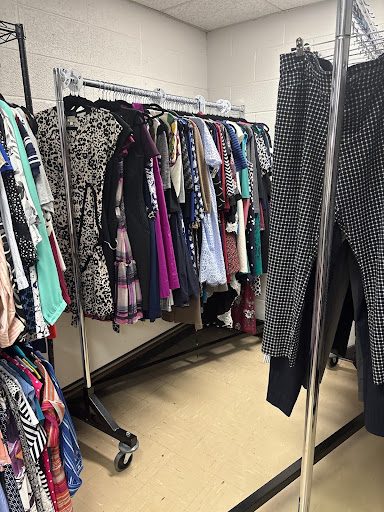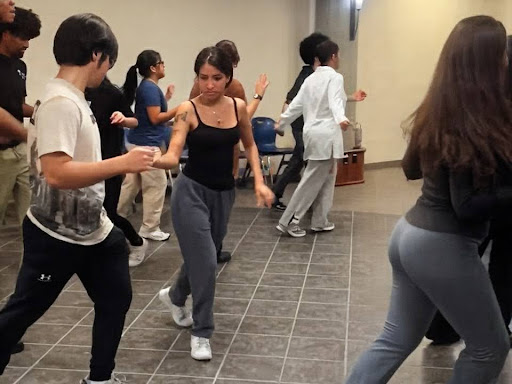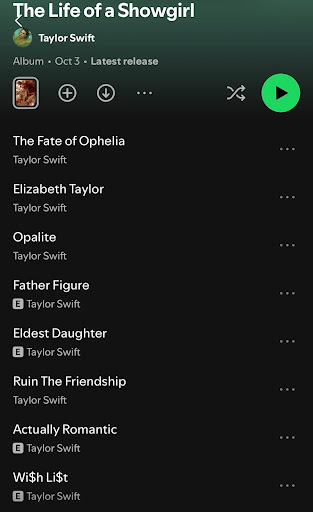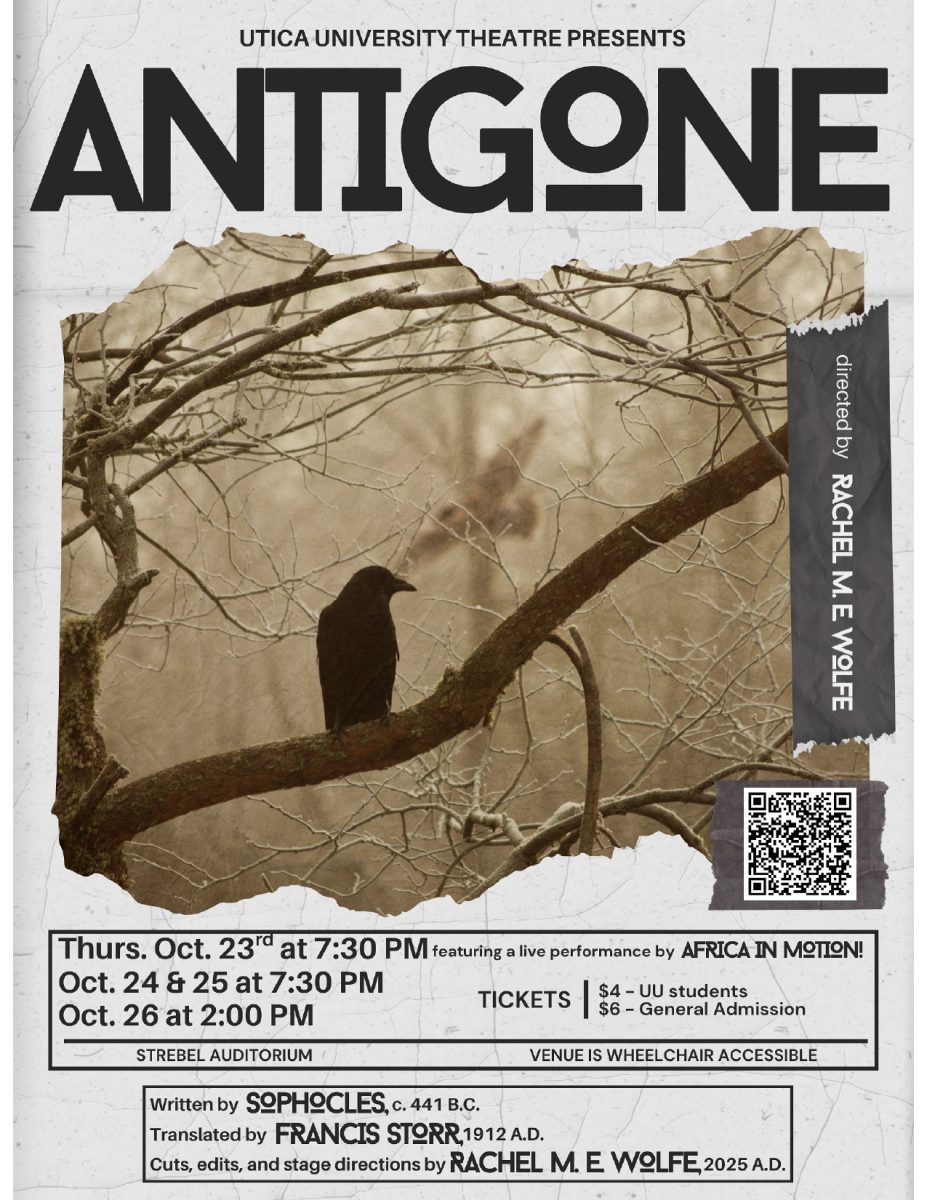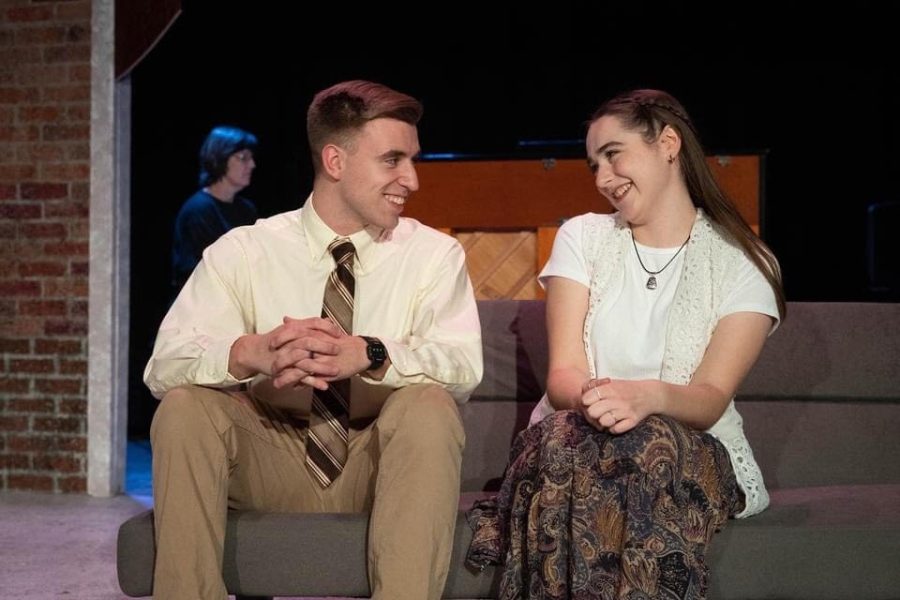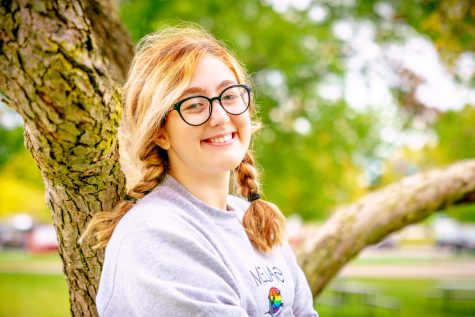Review: ‘I Love You Because’
November 21, 2022
As you walk down the greeting card aisle in the grocery store, your eyes might be pulled by a glossy piece of cardstock that poetically says: “Life is like a seesaw.”
At least, this is something you would see if you lived in the world of “I Love You Because”, a musical written by Joshua Salzman and Ryan Cunningham as a loose adaptation of Pride and Prejudice.
The Utica University theater department hosted the musical from Nov. 3 to 6 directed by Denis J. Clark and music director Greg Unagast in Strebel Auditorium. The cast boasted six members, four as the main cast and two as ensemble members.
The show follows brothers Austin, a greeting card writer, and Jeff Bennett, his goofy older brother, after Austin is cheated on by his girlfriend, Catherine. The Bennetts go on a double-date with best friends Diana Bingley, an actuary, and Marcy Fitzwilliam, a free spirit. Throughout the musical, the couples fall for each other despite being opposites.
The stage was directed with two doors, a cut-out for the onstage band and a wooden display of New York City elements illuminated by a strip of light along the top. This simple stage, along with reused props like a fold-out couch, made the stage malleable to each scene and location.
The lighting at the top of the set simulated the feeling of being in a bustling, bright city while also matching the mood of the scene at hand. Being able to see the onstage band in the back of the stage felt like being at a music venue like a bar, which was a scene in the musical, where the live music is performing in the background as ambiance.
Despite the cast being relatively small, the amount of singing strength and stamina made it seem larger. During the final group number, which has the same title as the musical itself, the power of all six vocals filled the theater with power and emotion.
The standouts of the cast were ensemble members Cailee Blackington and Jacob Carissimo. They each played several different roles, which included a New York City landlord, barista and workers at a Chinese restaurant. Their ability to use stereotypical New York City accents and use the stage space to seem like larger-than-life caricatures of New York City residents was extremely effective.
The chemistry of the two main couples made the relationships feel complex and passionate. Paloma Collado and Derek Corsner as Diana and Jeff brought the humor of a woman who loves numbers and a man who mixes up common phrases. The contrast of Collado’s serious tone and rigid stance beside Corsner’s relaxed and upbeat voice profoundly depicted them as opposites.
However, during duets between them, Corsner and Collado’s voices beautifully melded together as powerful and sweet. Similarly, Xander Wilson and Hannah DeStefano as Austin and Marcy sang with power that challenged each other without being overpowering to show the dynamic of their characters.
The costuming of the show promoted the early 2000s sitcom vibe. The stiffer characters like Diana and Austin wore button-ups, khakis or pencil skirts. Jeff and Marcy, the freer spirits, were dressed in bright patterns, loud skirts and in Jeff’s case, shirts with cringe-worthy pick-up lines.
Overall, the show was extremely entertaining. The cast worked together comedically and musically, tied together by appropriate clothing and a minimal, yet telling set in the background.



